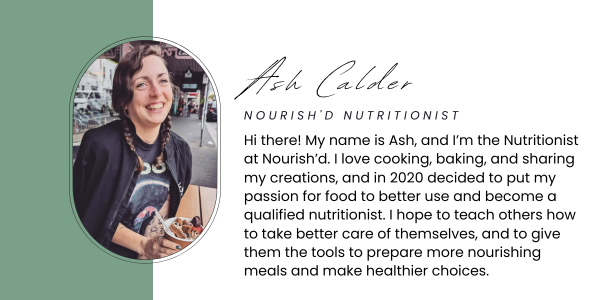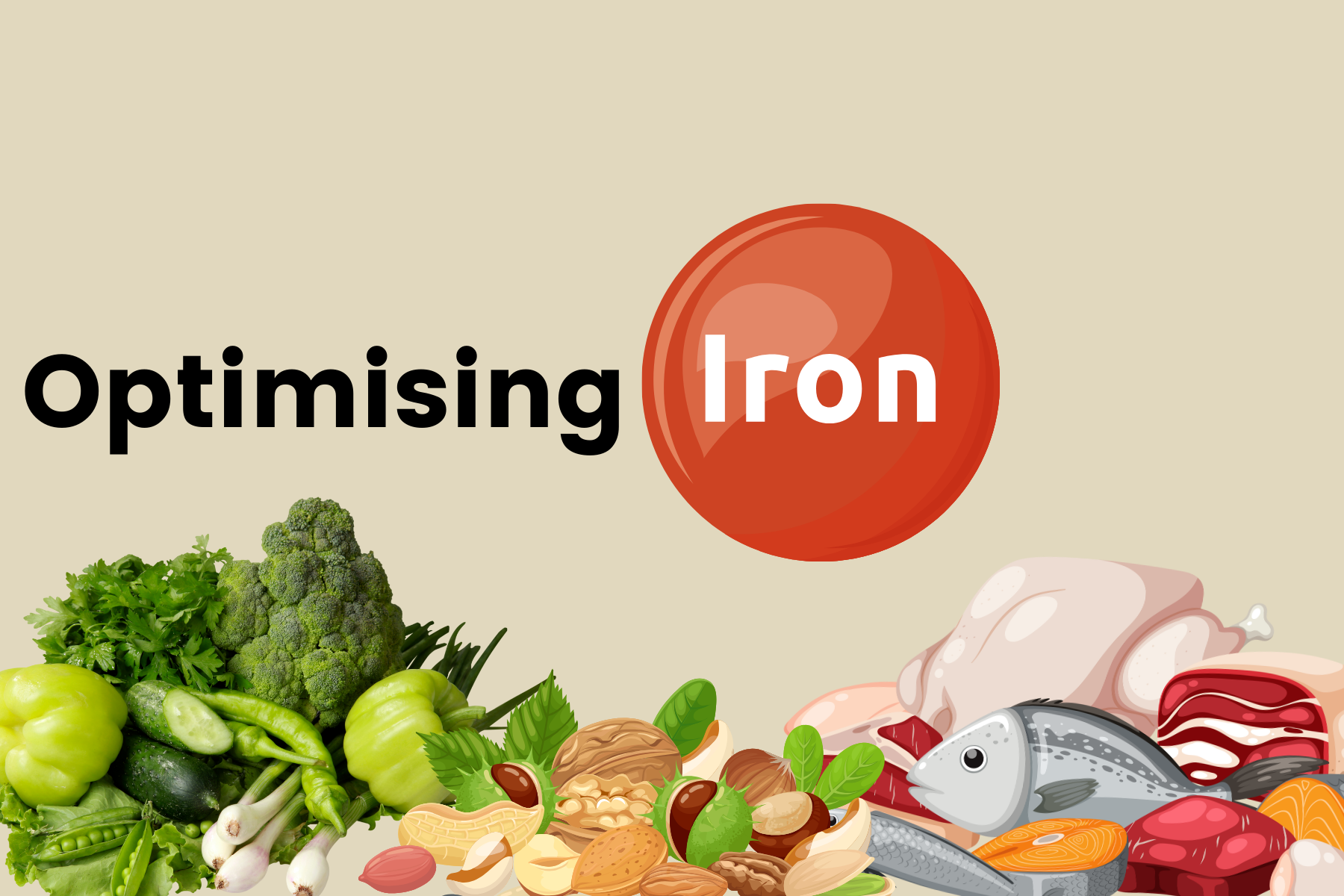Let’s talk about iron, a mineral that is often overlooked but one that plays an absolutely crucial role in keeping us energised and vibrant. You might not give it much thought, but iron is essential for our overall well-being, so let’s dive in and discuss how you can iron out your diet!
The Role of Iron in the Body:
Iron is a key component of many physiological functions in the body:
-
Oxygen Transport - haemoglobin, which accounts for two thirds of the body's iron, is a protein in red blood cells that carry oxygen from your lungs to the rest of your body.
-
Enzymes - many enzymes contain iron, most of which are involved in energy production.
-
Myoglobin - an iron-containing protein that stores oxygen in muscle cells.
-
Immunity - our immune system relies somewhat on iron to function properly.
Without enough iron, your body can’t produce enough healthy red blood cells, leading to a range of health issues. It is estimated that up to 5% of the Australian population has iron deficiency anaemia.
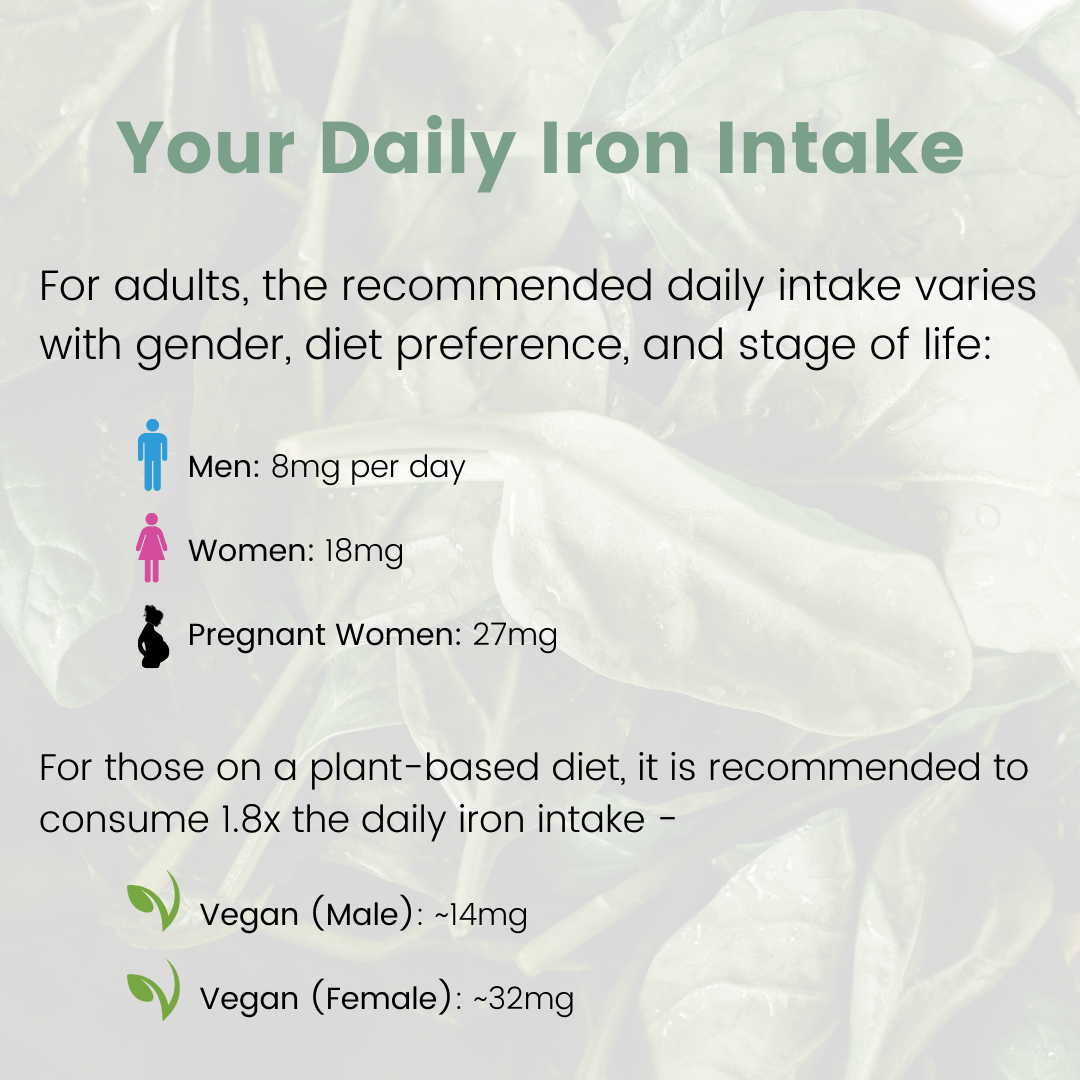
Iron rich foods:
There are two types of dietary iron - haem, which is found in animal based foods, and non-haem, found in plant-based foods. Haem iron is easily absorbed, where as non-haem iron is harder to absorb - this is why those following a plant-based diet require more iron per day.
But whether you're an omnivore or a vegetarian/vegan, there are plenty of delicious options to boost your intake:
-
Omnivore options: Lean meats like beef, chicken, and turkey are excellent sources. Fish, particularly shellfish (clams, oysters, and mussels), are also great choices. Eggs are also packed with iron!
-
Plant-based options: Plant-based sources of iron include beans and lentils, soy, quinoa, nuts and seeds (especially pumpkin and hemp seeds), dark leafy greens like spinach and kale, and fortified cereals and bread.
Increasing Absorption:
The good news is that a well-planned diet can provide your iron needs!
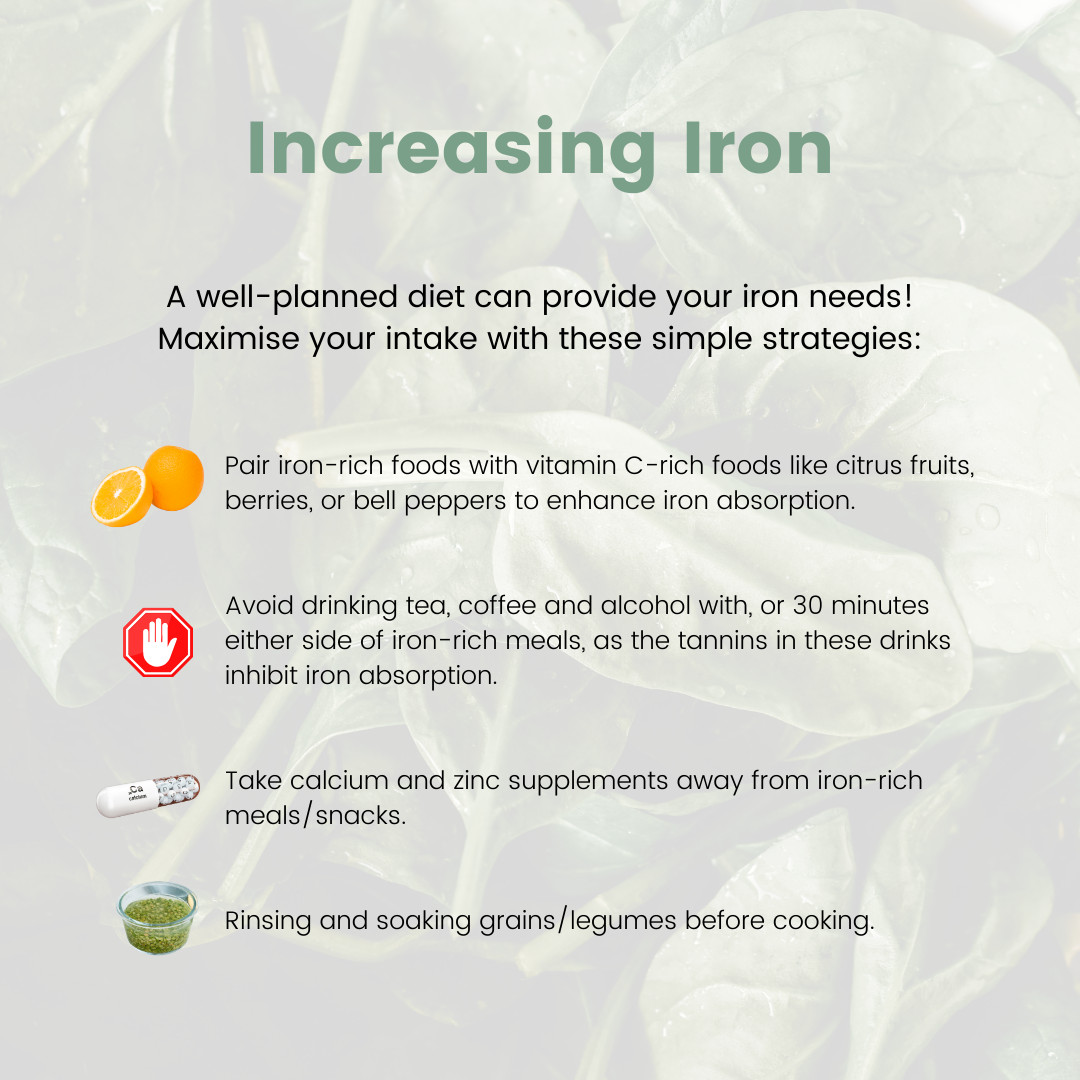
Tips & Swaps to Boost Iron:
Here are some simple swaps you can make daily that will boost your iron levels:
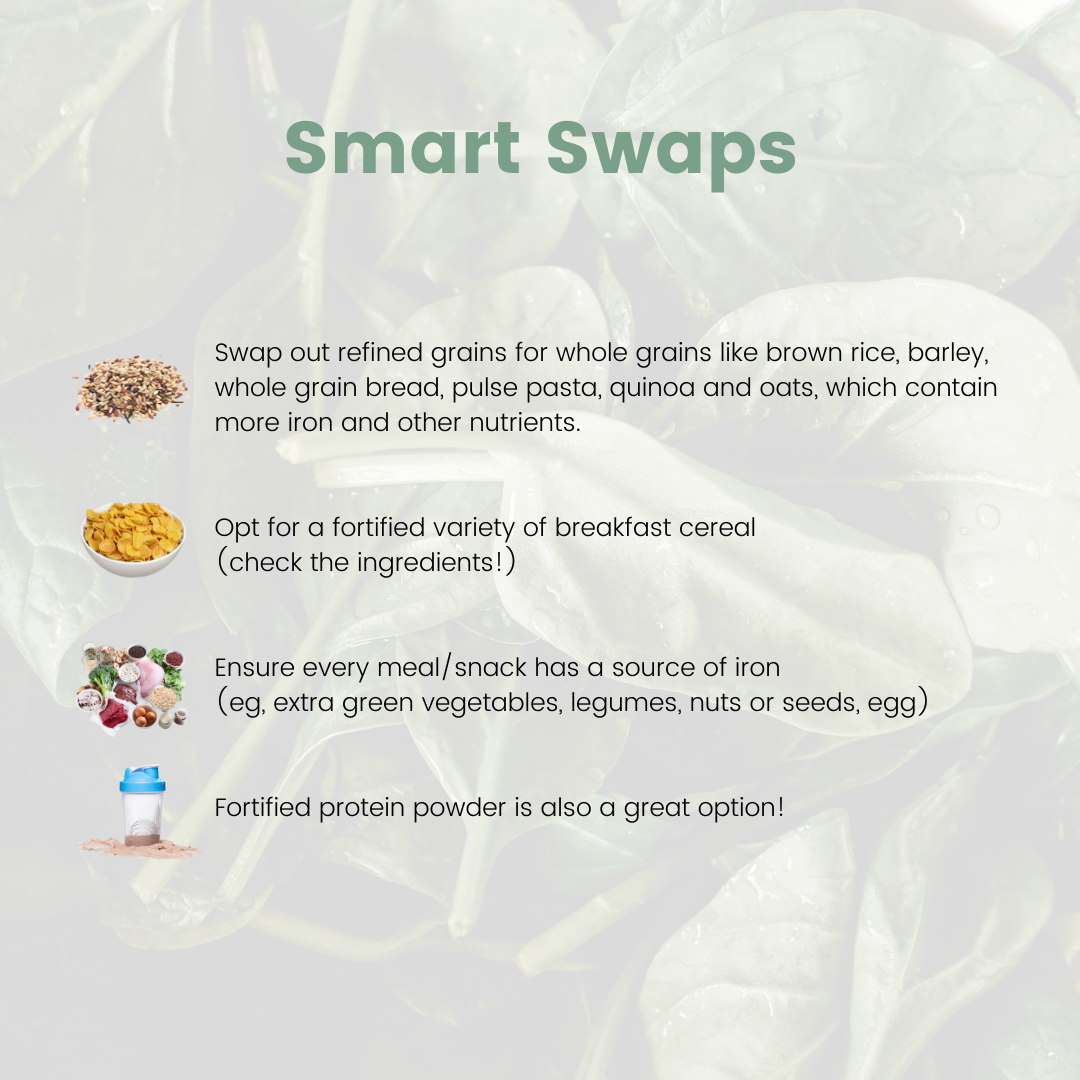
Deficiency & How to Address It:
Iron deficiency can sneak up on you, so it’s essential to be aware of the signs and symptoms. Symptoms often start mild and worsen as the deficiency becomes more severe.
-
Fatigue, weakness, dizziness
-
Decreased immunity
-
Shortness of breath, heart palpitations
-
Impaired cognitive function
-
Sensitivity to cold
-
Reduced athletic performance
-
Hair loss, brittle nails, pale skin.
Iron deficiency is one of the most common deficiencies affecting more than 30% of populations worldwide. If you suspect you might be deficient, it is recommended you speak with your GP and request a simple blood test to determine your iron levels. They will then be able to recommend the appropriate course of action for you.
To wrap things up, iron is a vital nutrient that plays a crucial role in keeping our bodies functioning optimally. By incorporating iron-rich foods into your diet, making smart swaps, and following tips to boost absorption, you can ensure you're getting enough iron to support your health and well-being.
